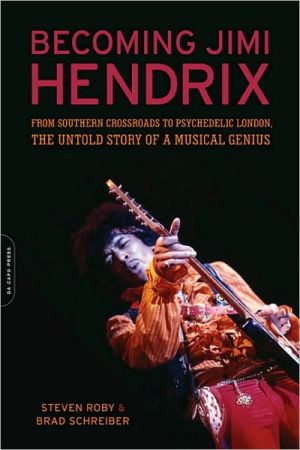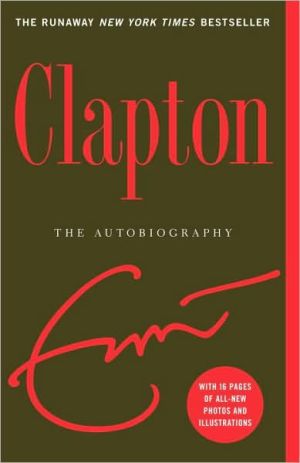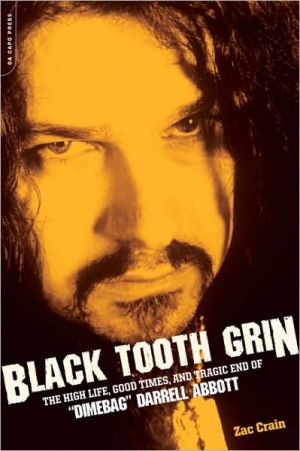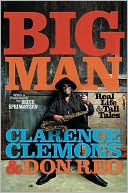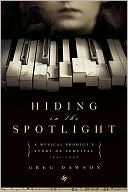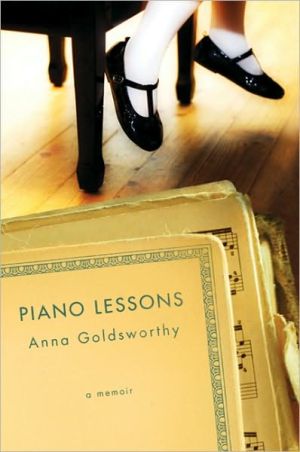Mozart in the Jungle: Sex, Drugs, and Classical Music
"In the tradition of Anthony Bourdain's Kitchen Confidential and Gelsey Kirkland's Dancing on My Grave comes an insider's look into the secret world of classical musicians." "From her debut recital at Carnegie Recital Hall to the Broadway pits of Les Miserables and Miss Saigon, oboist Blair Tindall has been playing classical music professionally for twenty-five years. In Mozart in the Jungle, Tindall exposes the scandalous rock-and-roll lifestyles of the musicians and conductors who inhabit...
Search in google:
From her debut recital at Carnegie Hall to performing with the orchestras of Les Miserables and Miss Saigon, oboist Blair Tindall has been playing classical music professionally for twenty-five years. She's also lived the secret life of musicians who survive hand to mouth, trading sex and drugs for low-paying gigs and the promise of winning a rare symphony position or a lucrative solo recording contract. In Mozart in the Jungle, Tindall describes her graduation from the North Carolina School of the Arts to the backbiting New York classical music scene, a world where Tindall and her fellow classical musicians often play drunk, high, or hopelessly hung-over, live in decrepit apartments, and perform in hazardous conditions. (In the cramped confines of a Broadway pit, the decibel level of one instrument is equal to the sound of a chain saw.)Mozart in the Jungle offers a stark contrast between the rarefied experiences of overpaid classical musician superstars and those of the working-class musicians. For lovers of classical music, Mozart in the Jungle is the first true, behind-the-scenes look at what goes on backstage and in the Broadway pit. Library Journal Journalist and oboist Tindall has fashioned a tell-all memoir of her life from the 1960s to today, tracing her years at the North Carolina School of the Arts, study at the Manhattan School of Music, experiences playing in chamber groups like Orpheus, and making a Carnegie Recital Hall debut before heading off to Stanford for graduate work in journalism. Famous and less well known musicians invariably come across badly in the author's estimation, as either impolite, unfriendly, or downright lecherous. The book would have been much better had Tindall decided which audience she was trying to reach. While her discourses on the role of the arts in America during different decades, the travails of the audition process, the life of a traveling musician, and the role of unions engage and inform, she spends a lot of time on her sexual exploits, drinking, drug use, and "casting couch" encounters-content not for the faint of constitution. Public libraries in the New York City area serving patrons who lap up this sort of thing might consider, but all others can skip.-Barry Zaslow, Miami Univ. Libs., Oxford, OH Copyright 2005 Reed Business Information.
Mozart in the Jungle\ Sex, Drugs, and Classical Music \ \ By Blair Tindall \ Grove Press\ Copyright © 2006 Blair Tindall\ All right reserved.\ ISBN: 9780802142535 \ \ \ \ Chapter One\ The Magic Flute \ When I was seven years old, I wanted a magic dress. Our family had just moved to Vienna, Austria, by way of a summer's voyage across the Atlantic, and every corner of my strange and wonderful new world was filled with fantastic stories, beautiful music, and paintings about real kings and queens. Fairy-princess clothes, like nothing I'd seen back home in North Carolina, were everywhere. The native garb of the Austrian provinces was adorned with pleats and flounces. Museums displayed golden robes from the Hapsburg Empire. Ballerinas at the opera house twirled on point in pink satin shoes and fluffy tulle skirts. Even ordinary girls wore pretty dirndl dresses that looked like costumes. I'd looked at pictures of Europe in my grandparents' stash of National Geographics, and now it all came to life. I'd never seen huge old churches, cobblestone streets, or snow-capped mountains at home. The world's tallest Ferris wheel and the real blue Danube made Vienna into a child's wonderland. Europe also cast its spell on my parents, who had almost never traveled abroad. Both born in 1921, they were the first in their families with college degrees, and our yearin Vienna immersed them in the culture, history, and arts they'd come to love. My father had just been appointed a visiting lecturer in American history at the University of Vienna. Like many World War II vets, Dad was educated under the GI Bill after returning from duty, in his case earning a PhD in the history of the American South. By 1958, he had settled into a suburban professor's position in Chapel Hill, North Carolina, which aside from the university was a quiet spot. There were occasional concerts, and the Varsity showed first-run films uptown. Dinner out meant the S & W Cafeteria over in Durham. Before the trip, my mother had exercised her wry humor by naming our toy boats after our ship, the SS Atlantic, then sinking them at bath time. She showed me pictures of the vessel, the pier, and the "women and children first" emergency drills, which turned out to be true. Nothing she said could have prepared me for the glamour on board, however. It was 1967, and people traveling on ocean liners took dressing for dinner seriously. A string trio played as my brother, Bruce, and I checked out the grown-ups in their long gowns and dinner jackets; there was even a top hat like the ones in New Yorker cartoons. The captain could have been a movie star in his epauletted whites. As an enormous tuxedoed Arab twirled his cigar, I could not look away from an exotic darkness and blue-black hair I'd never before seen. On the seventh day, land rose from the horizon. Casablanca! Mosques and minarets. Ancient buildings, fountains, paving stones. I smelled strange things-spices, maybe-and heard bleating goats and shouts from food stalls. Since my idea of good eating meant processed lunchmeat, I gawked at entire animals roasting. Beside a vat of turtle soup, a man wailed like a grieving widow, blowing tunes through his Moroccan rhieta, a sort of snake charmer's reed instrument. Men raced by in white cotton djellabas, tassels bobbing on their red fezzes. We sailed to Mallorca, Nice, and Genoa. In each strange city, I slung my shoulder bag diagonally across my plain jumper dress for security. At the last port, we transferred to an overnight train bound for Vienna. There, amid loud sirens and clanging trolleys, our sprawling apartment overlooked the cupola of an old wooden food market, which literally sat in the middle of a busy intersection. Dad soon traveled to Munich, bringing back a white Volkswagen bug he had bought there. In it, we bounced down the autobahn to weekends in Bucharest, Belgrade, and Budapest. In Thessaloniki, I remember the Aegean's aquamarine sea, white stucco houses, and ancient ruins. In Capri, the surf had carved the Blue Grotto, a natural vaulted cave accessible only by a tiny opening for boats. On the Hungarian border, I set a toe onto Communist soil and tried to understand the meaning of "Iron Curtain." The sixties were a tumultuous period of change around the world, but none of it touched Vienna, which felt locked in the past. We immersed ourselves in Austrian treats, sampling schnitzel at the Augustinerkeller, sugary cream horns at Konditorei, and apricot Sacher torte and cocoa smothered in whipped cream. On Karntnerstrasse, a string quartet played Beethoven for ten-schilling coins pedestrians threw into an open violin case. Classical music was everywhere in Vienna. Franz Lehar's operetta The Merry Widow played near our apartment at the Volksopera-the People's Opera-whose music filled Vienna's streets. During shopping expeditions at the nineteenth-century market hall on our street, light streamed in from windows far above our heads, and the building's walls sealed us into everyday local life. The butcher sang arias off-key as he wrapped Die Presse around our meat. The old woman who sold us milk clotted with butter hummed a familiar Merry Widow tune. Even the white Lipizzaner stallions at the Spanish Riding School danced to classical music, as they had since 1572. Their arena looked just like a ballroom or concert hall, with chandeliers hanging above riders wearing bicorne hats and tailcoats, guiding their horses through routines of synchronized prancing. We met other Americans, gathering for parties in the American Embassy and private dinners at home. At Thanksgiving, I played with our hostess's Christmas doll, Krampus, an Austrian archenemy of St. Nick, and listened to a pretty first-grade schoolteacher from Chicago. She said she'd won a singing contest, and the prize had brought her to Vienna. She only knew two songs and didn't speak German, but the Vienna State Opera had heard her voice and begged her to sing Mozart's opera The Magic Flute. Her name was Arleen Auger. My parents talked to Arleen about music, since they both played the piano and listened to symphonies on the radio at home. My grandmother had played the organ at church, and my grandfather said he played a little violin during World War I. Even though my brother, Bruce, was only eleven, he could already perform some pieces by Mozart on the piano. I knew a little about Mozart too, after visiting his house in Salzburg. His parents had trotted him around Europe as something of a curiosity. He could play several different instruments and repeat a piece of music blindfolded after hearing it only once. His Magic Flute, written just before he died at age thirty-five, captured the composer's childlike imagination in a story of sorceresses and enchanted animals. Music itself was almost a character in the opera, as Prince Tamino could pass through fire and water with the power of his magic flute. We went to hear Arleen in The Magic Flute at the State Opera, an ornate temple to music built in 1869. Busts of conductors who had performed here lined the lobby: Gustav Mahler, Richard Strauss, Herbert von Karajan. I was glad we weren't going to the Musikverein, where I'd already sat through three or four boring concerts. The old men there played symphonies for hours without telling any story at all, leaving me to stare at the naked gold ladies holding up the balcony. I'd already been to the opera house to see Swan Lake. I imitated ballerina Margot Fonteyn's boneless arms and imagined myself wearing her jeweled white tutu and sparkly tiara. Tonight's story would be different. As we walked through the opera house lobby, my mother traced out scenes from The Magic Flute that were woven into the foyer's huge tapestries. There was Papageno, dressed like a bird, his lips padlocked by the Queen's ladies-in-waiting. Then Pamina, the sun-cult priestess, in the temple of Isis. And finally Arleen's character, the evil Queen of the Night. As the usher seated us, I smoothed the skirt of the Austrian dirndl my mother had bought me. It was pink and chocolate-brown, with a lace-up bodice, puffy underblouse, patterned skirt, and fringed scarf that tucked into the neckline. It was the first time I'd worn it, and the dress made me look like an Austrian girl. I fidgeted during the overture music, but at last our schoolteacher friend came onstage. In her embroidered velvet costume and towering headdress, Arleen had been transformed into something very special. She began ordering Pamina to murder the priest of Isis: Hell's revenge cooks in my heart, Death and despair flame about me! If you do not kill Sarastro You will be my daughter nevermore. Suddenly, my dirndl felt ordinary, something that everyone wore. If only I could snap my fingers and become Queen of the Night like Arleen, with all these people watching! I wanted all that attention. I wanted to be a queen onstage, like her. I wanted that magic dress! One year later, in 1968, we sailed home on the SS Michelangelo. New York's skyline had changed; construction had started on the World Trade Center at the tip of Manhattan. The city felt somewhat European, with French and Italian restaurants crowding side streets near the Taft Hotel, where we were staying. International travelers came and went from the West Side piers. Uptown, fancy cars and fancier people streamed by the white plaza of Lincoln Center-a shopping mall for the arts, bigger and newer than anything in Vienna. North Carolina had changed too. I was eight now, and my old classmates had grown into third-graders. They asked where I'd gone during second grade. "Austria! Did you see kangaroos?" My classmates bopped along to Beatles songs I didn't know, so I secretly hummed the Magic Flute tunes that reminded me of Arleen's magic transformation. Vienna started fading from my memory as I moved back into my old pink bedroom. Mom tried to re-create our European life and its sophistication by spreading out books full of paintings from Austrian museums-she hung up a Durer print that I liked-and tuning in to Metropolitan Opera broadcasts every Saturday. She found marzipan bunnies and Konditorei pastries at a little shop on Franklin Street, owned by Hungarian Jews who'd fled Austria in 1939 to escape the Nazi occupation. There was home-grown culture too. The North Carolina Symphony soldiered from Manteo to Murphy on a rattletrap bus with its mission of music education. Founded in 1933 as a Works Progress Administration project, the state's Horn-Tootin' Bill of 1945 had funded it ever since. My third-grade class rode the bus with the rest of the elementary school to one of their concerts. First we listened to them play Prokofiev's Peter and the Wolf; then we made a horrible cacophony by tweeting along on plastic tonettes the school provided. My parents enjoyed playing piano for fun and encouraged me to start piano lessons too. After a few months, I found that scales and easy melodies were boring. I wanted to learn the loud dramatic Brahms and Beethoven pieces my now-thirteen-year-old brother could play. I didn't realize how much work he put into learning them. Sometimes my family drove thirty miles on two-lane roads to see the Philadelphia Orchestra or pianist Arthur Rubinstein in Raleigh's cavernous Reynolds Coliseum. Just one stop on a nationwide "community concert" circuit started in the 1920s, Raleigh brought in culture by selling subscriptions in advance, offering arts managements the fees up front and eliminating middlemen. Over three hundred towns in America had formed these civic music clubs, bidding on whatever artists they could afford. By filling the vast basketball arena's fourteen hundred seats, our series could sell seven concerts for seven bucks. Even though I knew the concerts were considered a cultural resource since we lived so far from a big city, I found them dull. In addition, the barnlike sports arena couldn't compare to Vienna's elegant State Opera House. The huge stadium's boomy acoustics made it hard to hear the instruments or see performers on the faraway stage. My mind would wander to places I'd rather be: watching tadpoles in the creek near our house, riding my bike to the swimming pool, or canoeing past rhododendrons on the Neuse River. All through elementary school, my parents urged me to keep taking piano lessons. I hated practicing and wasn't particularly interested in piano, but by sixth grade I had finally advanced enough to play in a local group recital. My mother rewarded me with a fairy princess dress with candy-pink chiffon pleats and a satin ribbon around the waist. I loved walking out in front of the audience in it. Once the applause died, though, I suffered an attack of stage fright. Sitting at the nine-foot Steinway, my hands shook. I had a memory slip and stopped, then started again. I wanted to disappear or run offstage, but I managed to finish my halting performance. Only when I walked away from the keyboard was I transformed back into the fairy princess. That year, 1971, someone from the music store brought trumpets, flutes, saxophones, and trombones to Estes Elementary. First, the bandleader gave us a music test: Is this note higher or lower? Softer or louder? I got all the questions right. So did Johnny Edwards, a black kid who lived in a house with a dirt floor and an outhouse in rural Orange County. Afterward, Johnny wandered outside while I stayed behind with other budding musicians. Our schools had been racially integrated for six years, but renting a trumpet for thirty bucks a month would have been a challenge for Johnny's parents. The bandleader started handing out instruments alphabetically by our last names. Finally I'd get my magic flute! I watched impatiently as Miketa got the last trumpet, Osborne the trombone, and Smith, the last flute. By the time he got to Tindall, my options had narrowed to two unfamiliar instruments, oboe and bassoon. (Anyone named Zebulon was destined for a kazoo.) "I'll take the little one," I said, pointing at a dull black tube scattered with metal keys. I sure wasn't wrangling the bedpost-sized bassoon. If only I'd stayed awake during Peter and the Wolf! In Prokofiev's tale, the sinuous cat slithers around a clarinet, wolves sneak through the forest to the sound of French horns, and a silver flute pipes sweet birdsong. The oboe plays a goofy waddling duck that is devoured by the wolf and left to quack plaintively from his belly. Trotting home with my consolation prize, I put the plastic Selmer oboe together, stuck its reed mouthpiece in the top, and blew. Nothing. My mother sprang into action, paying for oboe lessons. My new teacher demonstrated how difficult the oboe was compared to other instruments by inviting Dad to blow on a flute just like he did a Coke bottle. Then he tried the oboe. Blat! Squawk! The vibrating reed tickled his lips. She pointed out that good oboists were a hot commodity and dispatched us for store-bought reeds and various accessories. Mom even braved a black-lit head shop for cigarette papers to mop up spit under the keys. Fully equipped, I marched off to band practice. I was already bookish, so no one would confuse me with the angelic cheerleaders who all played the flute. My nerd factor spun off the charts. I turned scarlet from blowing through the tiny reed; veins popped out on my forehead. Since no one picked the bassoon, I became band bozo by default. The instrument didn't play itself. Even the best commercial reeds, handmade one at a time from bamboo, barely made a sound. Since the fragile mouthpieces had to be crafted to individual players and instruments, there was little choice: I had to learn to make my own reeds. With a bad reed, my oboe could be a beastly instrument honking and squeaking as if it had a mind of its own. When my reeds were working, though, I learned that making a sound spoke my emotions more directly than my own voice. The pleasure of making music was not the oboe's only attraction, however. My teacher had been right; the oboe did come with rewards. Composers wrote juicy solos for oboes that sent band directors into ecstasy. Teachers excused me for band competitions, a trip to All-State Orchestra in the mountains, and, finally, the university wind ensemble's week-long tour. At fourteen, I checked into a Pinehurst motel with fifty college students and within an hour was sipping a twenty-year-old drummer's beer while he stroked my ego. The ensemble's director-something of a local celebrity, having played French horn on the original recording of the Captain Kangaroo theme music in the 1950s-also fawned over his little oboe player. That summer of 1974, I attended the Transylvania Music Camp, which was part of the larger Brevard Music Center near Asheville, North Carolina. There, I studied with oboists from the Dallas and Atlanta symphonies. Since I was advanced for my age, I was also placed in the Music Center's Repertory Training Program, where I played through most of the Beethoven and Brahms symphonies with high school and college music students.\ \ \ Continues...\ \ \ \ Excerpted from Mozart in the Jungle by Blair Tindall Copyright © 2006 by Blair Tindall. Excerpted by permission.\ All rights reserved. No part of this excerpt may be reproduced or reprinted without permission in writing from the publisher.\ Excerpts are provided by Dial-A-Book Inc. solely for the personal use of visitors to this web site. \ \
First movement : Appassionata sonata1The magic flute72Cunning little vixen193The prodigy404New world symphony475Apollo's flophouse586Elixir of love677The rite of spring798A midsummer night's dream929The damnation of Faust106Second movement : rhapsody in blue10West side story11911Mozart in the jungle13912Twilight of the gods15013Danse macabre15914Unfinished symphony17015The pits19116Beggar's opera20517The age of anxiety221Third movement : symphonic metamorphoses18Airlift from Saigon23719Smoke and mirrors24820Les Miserables25521The medieval Baebe26622Music of the heart277Encore : the lark ascending291
\ Library JournalJournalist and oboist Tindall has fashioned a tell-all memoir of her life from the 1960s to today, tracing her years at the North Carolina School of the Arts, study at the Manhattan School of Music, experiences playing in chamber groups like Orpheus, and making a Carnegie Recital Hall debut before heading off to Stanford for graduate work in journalism. Famous and less well known musicians invariably come across badly in the author's estimation, as either impolite, unfriendly, or downright lecherous. The book would have been much better had Tindall decided which audience she was trying to reach. While her discourses on the role of the arts in America during different decades, the travails of the audition process, the life of a traveling musician, and the role of unions engage and inform, she spends a lot of time on her sexual exploits, drinking, drug use, and "casting couch" encounters-content not for the faint of constitution. Public libraries in the New York City area serving patrons who lap up this sort of thing might consider, but all others can skip.-Barry Zaslow, Miami Univ. Libs., Oxford, OH Copyright 2005 Reed Business Information.\ \

